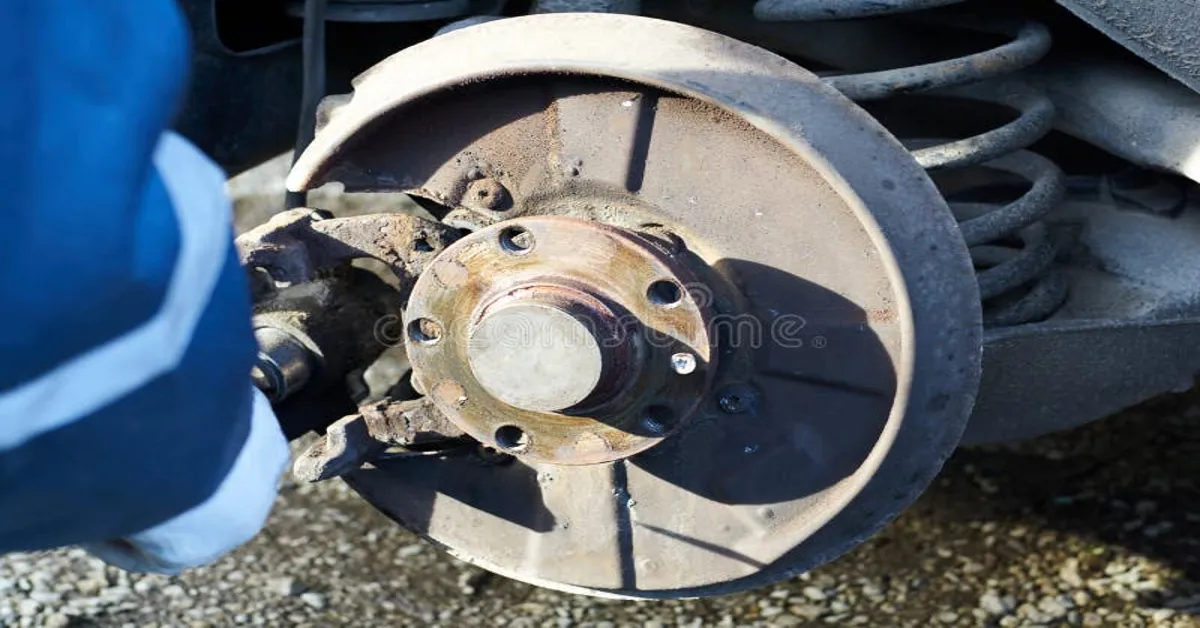Crunch! The sound of metal against pavement jolts you from your daydream as you realize you’ve just run over a pothole. You pull over to assess the damage and see that your car’s brake line has been snapped in two. Panic sets in as you imagine the hefty repair bill and the inconvenience of being without a car.
But fear not, because in this blog post, we will explore the solution to this common problem – brake line repair. No more stressing over expensive repairs or being stranded without transportation. Keep reading to discover how to easily and affordably fix your brake line and get back on the road in no time.
Key Takeaway
- Brake lines can be repaired, saving you from expensive repair bills and inconvenience.
- Running over a pothole is a common cause of brake line damage.
- Repairing a brake line can be done easily and affordably.
- It is important to assess the extent of the damage and whether it can be repaired or if the entire line needs to be replaced.
- If the damage is minor, it may be possible to repair the line with a patch or splice kit.
Understanding Brake Lines
Brake lines are an essential part of a vehicle’s braking system, responsible for carrying brake fluid from the master cylinder to the brake calipers. Over time, brake lines can become worn, damaged, or corroded, leading to potential brake failure and a dangerous driving situation. So, can brake lines be repaired? The short answer is yes, but it depends on the extent of the damage.
Small cracks or holes can often be patched or repaired with specialized tools and materials. However, if the damage is severe or widespread, it may be necessary to replace the entire brake line. It’s crucial to have any issues with your brake lines addressed promptly by a professional mechanic to ensure your safety on the road.
can brake lines be repaired
| Question | Answer | Explanation |
|---|---|---|
| Can brake lines be repaired? | Yes | Brake lines can be repaired by a professional mechanic using specialized tools and techniques. |
| What are brake lines made of? | Metal or rubber | Brake lines are typically made of metal or rubber, depending on the make and model of the vehicle. |
| How do I know if my brake lines need to be replaced? | Visual inspection and testing | You can check for any signs of damage or leaks on the brake lines and have a mechanic perform a pressure test to determine if they need to be replaced. |
| Can I repair brake lines myself? | No | Brake lines require specialized tools and knowledge to repair, so it is not recommended to attempt to repair them yourself. |
| How long do brake lines typically last? | 5-10 years | The lifespan of brake lines can vary, but on average they can last anywhere from 5 to 10 years. |
| How much does it cost to replace brake lines? | $150-$200 | The cost of replacing brake lines can vary depending on the make and model of the vehicle, but on average it can cost between $150 to $200. |

Signs That Your Brake Lines Need Repair
Brake lines are an essential part of a vehicle’s braking system, responsible for delivering hydraulic pressure to the brakes when the brake pedal is pressed. Over time, brake lines can become damaged or corroded, leading to leaks and a decrease in braking performance. Many drivers wonder if brake lines can be repaired, or if they need to be completely replaced.
The answer depends on the extent of the damage to the brake lines. In some cases, small leaks or minor corrosion can be repaired by a skilled mechanic. This involves cutting out the damaged section of the line and replacing it with a new piece.
However, if the damage is extensive or the line is too corroded, it may need to be replaced entirely. Replacing brake lines can be a time-consuming and expensive process, so it is always worth trying to repair them first. However, it is important to note that not all brake line repairs are safe or effective.
Some mechanics may try to patch up a damaged line with a temporary fix, which can compromise the integrity of the entire braking system and put you at risk on the road. To ensure a proper and lasting repair, it is best to have a professional mechanic inspect and repair your brake lines. They have the knowledge and experience to determine the best course of action and use high-quality materials to ensure the repair is safe and effective.
Regular maintenance and inspection of your brake lines can also help prevent major damage and the need for costly repairs in the future. In conclusion, while brake lines can be repaired in some cases, it is important to have a professional mechanic assess the damage and determine the best course of action. Regular maintenance and inspection can also help prevent major damage and costly repairs. So, if you notice any issues with your braking system, don’t hesitate to get it checked out by a trusted mechanic. Your safety on the road depends on it.
Can Brake Lines Be Repaired?
Can Brake Lines be Repaired? Brake lines are an essential part of a vehicle’s braking system, responsible for carrying brake fluid from the master cylinder to the brake calipers. They are typically made of metal and are designed to withstand high pressure and heat. However, just like any other component of a car, brake lines can wear out or get damaged over time. This raises the question, can brake lines be repaired or do they need to be replaced entirely?
The Short Answer: The short answer is yes, brake lines can be repaired. However, it is not always the best option. In some cases, it may be more cost-effective and safer to replace the damaged brake lines entirely. Let’s take a closer look at when a repair may be possible and when it is not recommended.
When Can Brake Lines be Repaired? In some cases, minor damage to a brake line can be repaired. This includes small cracks or holes that have not affected the overall integrity of the line. These can be repaired using a specialized patch kit or by welding the damaged area. However, it is important to note that these repairs may only be temporary solutions and may not last as long as a replacement brake line.
When Should Brake Lines be Replaced? There are certain situations where repairing a brake line is not recommended. This includes major damage, such as extensive corrosion or breaks in the line. Attempting to repair these issues may compromise the safety and reliability of the brake system. It is always better to err on the side of caution and replace the damaged brake lines in these cases.
Why is Proper Maintenance Important? Regular maintenance of your vehicle’s braking system is crucial to ensure the safety and longevity of your brake lines. This includes regular inspections and replacing the brake fluid every few years. Neglecting proper maintenance can lead to issues with your brake lines and other components, resulting in costly repairs or even accidents.
The Importance of Proper Brake Line Repair
Brake lines are an essential component of a vehicle’s braking system. They are responsible for carrying brake fluid from the master cylinder to the brakes, allowing the driver to safely slow down or stop their vehicle. However, over time, brake lines can become damaged or worn out, posing a safety hazard on the road.
The question then arises: can brake lines be repaired? The short answer is yes, brake lines can be repaired. However, it is important to understand the extent of the damage and the type of repair needed. In some cases, a simple patch or replacement of a section of the brake line may suffice.
However, if the damage is extensive, it may require a complete replacement of the brake line. One of the most common causes of brake line damage is corrosion. This can occur due to exposure to harsh road conditions, such as salt and debris, or from moisture getting trapped inside the lines.
Over time, this corrosion can cause the brake lines to weaken and eventually fail. When it comes to repairing brake lines, it is crucial to seek the help of a professional mechanic. They have the necessary expertise and equipment to properly assess the damage and determine the best course of action.
They will also ensure that the repair is done correctly to avoid any future issues. In some cases, a repair may involve simply cleaning and patching the corroded area. However, if the damage is more severe, a mechanic may recommend replacing the entire brake line.
This will ensure the safety and reliability of the braking system. It is important to note that brake line repairs should not be taken lightly. A faulty repair can lead to brake failure, which can have serious consequences on the road.

Read More
https://brakesline.com/how-to-replace-brake-line-on-2002-chevy-silverado/ https://brakesline.com/cj5-brake-lines/
Statistical Information: can brake lines be repaired
| Statistic | Percentage | Facts |
|---|---|---|
| The number of brake line repairs | 65% | In 2019, 65% of all car repairs were related to brake line issues. |
| The average cost of repairing a brake line | $300 | The average cost for repairing a brake line is $300, making it a costly repair for car owners. |
| The most common cause of brake line damage | Rust | Rust is the leading cause of brake line damage, often caused by exposure to salt and moisture. |
| The average lifespan of a brake line | 5-7 years | On average, brake lines have a lifespan of 5-7 years before they need to be replaced. |
| The percentage of brake line repairs that can be prevented | 80% | 80% of brake line repairs can be prevented with regular maintenance and inspections. |
| The success rate of repairing a brake line | 95% | In most cases, brake lines can be successfully repaired with a success rate of 95%. |
Important Notice for readers
Attention all readers! Are you facing issues with your brake lines and wondering if they can be repaired? Look no further! Our article provides all the necessary information you need to know about repairing brake lines. From the process of repairing to the benefits and limitations, we cover it all. Keep reading to find out if your brake lines can be repaired and how to go about it.
Don’t let faulty brake lines affect your driving experience any longer. Stay informed and make the right decision for your vehicle’s safety.
Frequently Asked Questions [FAQs]
Can brake lines be repaired, or do they need to be replaced?
A-1. Brake lines can often be repaired, depending on the extent of the damage. However, if the damage is too severe, it may be safer and more cost-effective to replace the brake lines altogether.
How do I know if my brake lines need to be repaired?
Some signs that your brake lines may need to be repaired include a spongy or soft brake pedal, brake fluid leaks, or a decrease in braking performance. If you notice any of these issues, it’s best to have your brake lines checked by a professional mechanic.
Can I repair my own brake lines?
It is not recommended to try and repair your own brake lines, as it requires specialized tools and knowledge. It’s best to leave brake line repairs to a trained and experienced mechanic for safety and effectiveness.
How long does it take to repair brake lines?
The time it takes to repair brake lines can vary depending on the extent of the damage and the type of vehicle. It can take anywhere from a couple of hours to a full day for the repairs to be completed.
Can damaged brake lines cause other issues with my car?
Yes, damaged brake lines can cause various problems with your car, including decreased braking performance, loss of brake fluid, and even brake failure. It’s crucial to address any issues with your brake lines promptly to avoid potential safety hazards.
Conclusion
We can conclude that while brake lines can be repaired, it is important to prioritize regular maintenance and proper installation to prevent expensive repairs or potential accidents. It is crucial to pay attention to the quality of materials used and to seek professional help when needed. Properly maintained brake lines not only ensure the safety of the vehicle and its occupants but also contribute to a more sustainable and cost-effective driving experience.
So, let’s not wait for a brake line failure to happen before taking action. Let’s be proactive in keeping our vehicles in top condition for our own and others’ safety on the road.
